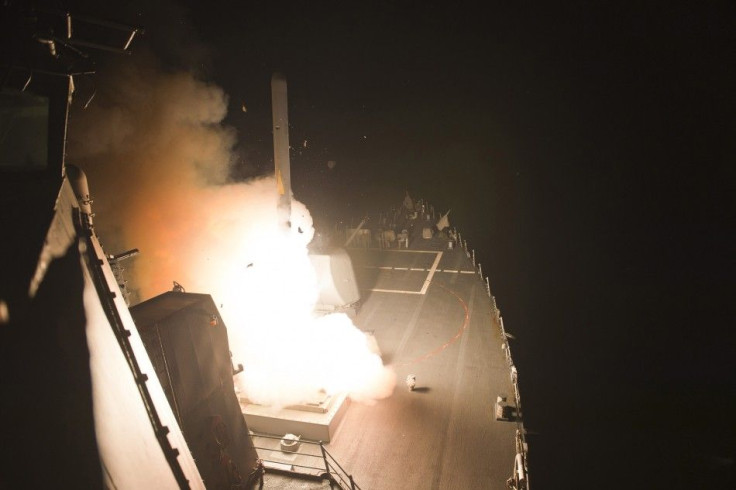ISIS Not A Long Term Threat, Says General Petraeus Of U.S. Military

Even as Islamic State is trying to spread terror by its recent attempt to single out the U.S. military personnel as targets, Gen. David Petraeus who led the U.S. surge in Iraq, does not see ISIS as a long term threat. Rather, Petraeus sees a bigger threat in the Middle East from Iran-backed Shiite militias, who are helping Iraq to fend off ISIS. He is concerned that they may turn into a destablising factor in the time to come.
They are "the foremost threat" to long-term stability of Iraq, said the veteran, while sharing his views in an interview, reports CNN. His comments provide a glimpse into how Obama administration's strategy in Iraq is shaping up, in which the General has a key role as advisor to the National Security Council. It may be recalled that the Shia militias, groomed by Iran have been playing an important part in the efforts to push ISIS out of Syria and Iraq. But the Shiite militants are also being blamed for war crimes for alleged killing of not only ISIS fighters, but Sunni civilians as well.
“They have, to a degree, been both part of Iraq's salvation but also the most serious threat to the all-important effort of once again getting the Sunni Arab population in Iraq to feel that it has a stake in the success of Iraq rather than a stake in its failure," Petraeus said. He expressed concern that in the long term, Iran backed Shia militias could emerge as the dominant power in Iraq, which will be beyond the control of the government and will be answerable only to Tehran.
Petraeus' comments are coming at a time, when the U.S.'s strategy against ISIS is under increased scrutiny by the Republicans led Congress lawmakers. There is also the debate on how to enshrine the U.S.'s war against ISIS into legislation, by formally authorising military force.
In the last few weeks, the lawmakers have heard the top national security officials in different hearings, on the growing influence of Iran in the region and its long-term implications on region’s security. Defense Secretary Ash Carter and Joint Chiefs Chairman Gen. Marin Dempsey raised legitimate concerns.
Post ISIS Scene
Iran's growing influence in the region dates back to the U.S. invasion of Iraq, which toppled Saddam Hussein's Sunni regime and put Shia Muslims in power. Iran, as Shia majority country used the opportunity to strengthen ties with its former enemy neighbour.
For Iran, the ISIS threat became an alibi to expand its influence in the region, sending its elite Revolutionary Guards to Iraq to train them in the fight against ISIS, whose advances into Iraq sent alarm bells ringing in Iran.
The U.S is concerned that despite Iran's ongoing negotiations with it, Iran still supports many terror groups in the region, who are threatening the U.S. strategic interests. Most important is Iran's support to the Assad regime in Syria. On the situation in Syria, Petraeus said he is "profoundly worried. Until it is capped, it is going to continue to spew radioactive instability and extremist ideology over the entire region”, said Petraeus. He said any strategy to stabilise the region must take into account the challenges in both Iraq and Syria. It is not sufficient to say that “we'll figure them out later."
The Obama administration's strategy in Syria has been just one of the points for criticism by Republican lawmakers. The prominent being Sen. John McCain, who has argued that the U.S. should do more to control violence in that country by arming moderate rebels, who are fighting the Syrian regime.
Though Obama administration trained and armed some opposition forces in Syria, lately its efforts have shifted to defeat ISIS, reducing the pressure on Assad regime. The U.S, while leading a coalition, that is pummeling the ISIS from the air has put some local forces on the ground. But the U.S efforts have spared the Syrian regime.
ISIS Flag
Meanwhile, a flag of the Islamic State was spotted on the side of a truck near a United States Army Reserve Center in Southfield, Michigan. It caused some concern in the last week-end. It was explained that it is not a sign that the terrorist organisation has moved into the Detroit area, according to officials. The truck has now been taken off-site. It was explained that the ISIS flag, commonly called a Black Standard flag, was used for an anti-terrorism training exercise, reports Newsweek.
(For feedback/comments, contact the writer at kalyanaussie@gmail.com)





















